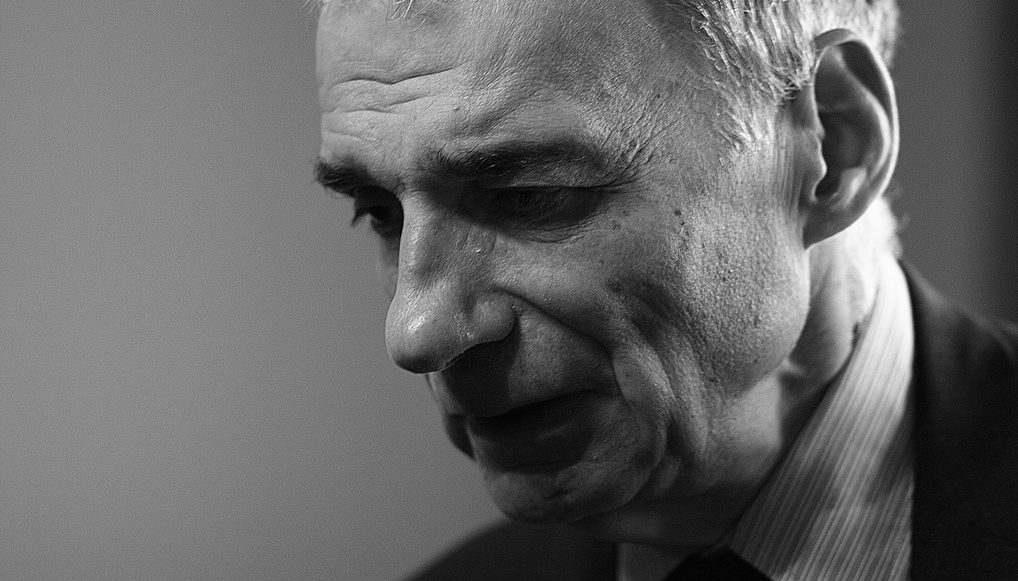At the conclusion of an September 26–29 “Breaking Through Power” conference in Washington, D.C., Michael Payne asked the event’s sponsor, Ralph Nader, about prospects for building a progressive movement. The brief interview was edited for length and clarity. You can also read Payne’s full dispatch from the conference here.
There was a lot of progressive energy in the Bernie Sanders campaign. One of the questions after it ended was: what now? There’s another big question. How do you build a progressive movement that can get power? Your new book Breaking Through Power seems like attempt to answer that question.
First, Breaking Through Power is about planting a lot of seeds and hoping some farmers will cultivate them. So, “here it is folks, use it in your own circle and your own neighborhood and your own movement.”
Second, if there’s a more organized political effort in 2018 and 2020, it will have to incorporate a deep, pervasive structural program to subordinate corporations to humans under the law and the Constitution, and to displace more and more [corporate] sales by community-owned businesses. Those are the two: subordination and displacement. Bernie did a great thing, but it was like an inch deep of water. His campaign just didn’t go deep in order to reach people who would say, “That’s the area I work on. That’s what I want to pick up.”
What do you think has been preventing grassroots, progressive movements from embracing these tactics?
I think Bernie’s broken the mold. He’s showed it can be done now, big time.
They’re on the front burner of each day’s crisis. So you can’t step back and keep doing different strategies. They’re strapped for resources. Those two produce routine, and routine is deadly to the progressive movement.
What do you think of the Brand New Congress initiative?
All you’ve got to do is ask one question. How many organizers do they have in the field? If they don’t, they can’t find the candidates because it’s hard. Nice name though.
What major barriers do you think they might encounter getting a candidate in the primary? Do you think the parties will try to halt their actions?
First of all they’ve got a problem, which is illustrated by, I think the Second Congressional District, in Glenn Falls, New York [Note: 21st Congressional District]. First-term incumbent; she was in the Bush White House. Her name is [Elise] Stefanik—very light weight, pleasing personality, big money. This November the Democrats have run another drone, a military guy who doesn’t even live in the district [Mike Derrick]. He was born there, now he’s coming back. Guy’s a sure loser. There’s also a Green Party candidate [Matt Funiciello] who could be a sure winner. The press loves him. He’s articulate on more issues than you can believe. And the Democrats weren’t smart enough to come to him and say, “What does it matter, Green or Republican, we’re going to support you because you can win in a two-way race.” Now what is Brand New Congress going to do? They want to support Democrats.
The other problem is they’re going to have a hell of a time finding candidates who fit the bill but are willing to run and raise enough money to run. To show you how hard it is, I don’t think the Greens have ever had more than 400 local candidates out of 2.5 million local seats; 2.5 million and they’ve never been able to break 400. If they’re going to have a brand new Congress, they better have 400 paid full-time organizers. Maybe they know how to raise money on the internet, they’re savvy on that. So maybe they’ll do it.
Do you think Internet funding will be a tool that new progressive institutions could use, or do you think there’s still going to be a reliance on bigger donors or foundations?
No, I think Bernie’s broken the mold. He’s showed it can be done now, big time. Look at this little group, suddenly it has $25 million.
Do you think the organization that Bernie’s looked into creating—Our Revolution—is going to be capable of doing that? Or do you think their focus is going to be too much on traditional methods?
Well they’re already in trouble. They’re supporting candidates that aren’t very progressive. And Bernie’s not an organizer, he’s a lone ranger. I don’t see much there. Look at the resignations. It must be pretty bad, you know, if they leave like that before it hardly starts because they don’t like who runs it [Jeff] Weaver. It’s up to them to give people like me calls. They’re like Occupy Wall Street, they don’t benefit from experience.
There is a lot of energy directed towards movements like Black Lives Matter, Fight for $15. Do you think those are limited for the same reasons?
How many Black Lives Matters organizers are there? It’s a tiny effort, but it’s gotten good media publicity because of the police providing the occasion but they’re starving in terms of funds. How many full-time paid people do they have? If you take the global population of young people pouring out of schools, you’re talking one-tenth of one-tenth of one-tenth of one percent.
Michael Payne is an activist and writer living in Virginia.







0 Comments